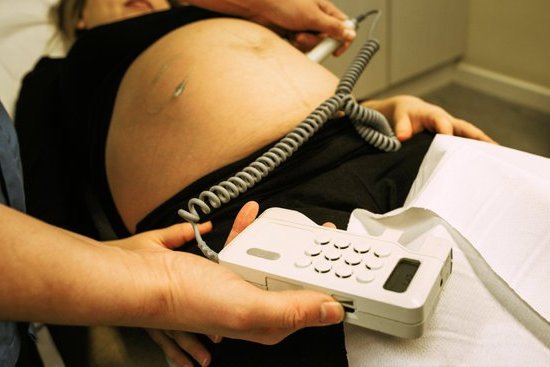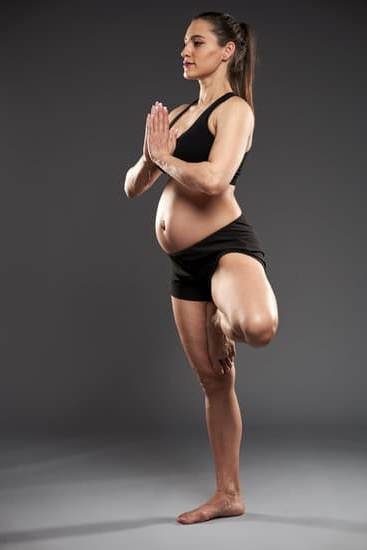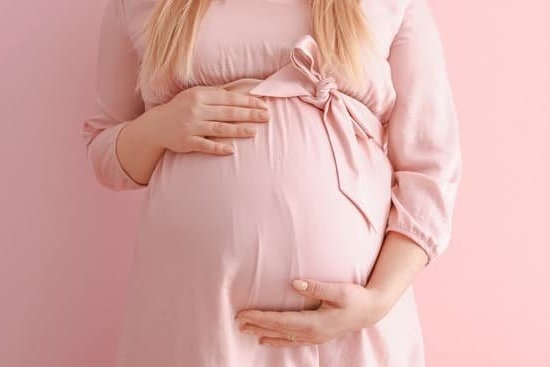Fatigue during pregnancy is a common and often overwhelming symptom experienced by many expecting mothers. It can significantly impact daily life, making simple tasks feel like daunting challenges. The question “when does fatigue start in pregnancy” is a crucial one for women anticipating the physical and emotional changes that come with expecting a child.
Pregnancy fatigue can be attributed to various factors, including hormonal changes, the body’s increased blood production, and the growing energy demands of the developing baby. These physiological changes can leave women feeling drained and exhausted, especially in the early stages of pregnancy. Understanding the root causes of this fatigue is essential in managing and finding relief from its effects throughout different trimesters.
During the first trimester, fatigue typically sets in as early as weeks 4-7 of gestation. This period coincides with significant hormonal shifts and metabolic adjustments in the body to support the developing fetus. Women may find themselves struggling to stay awake or feeling more tired than usual during this critical phase of pregnancy. As expectant mothers navigate this initial period of exhaustion, they may experience varying degrees of sensitivity to physical and emotional stressors.
Understanding Pregnancy Fatigue
During pregnancy, fatigue can be a common symptom experienced by many expecting mothers. Understanding the reasons behind this fatigue is crucial in managing and coping with it effectively. There are several factors that contribute to fatigue during pregnancy, including hormonal changes, increased blood production, and the body’s heightened energy demands.
Reasons Behind Pregnancy Fatigue
- Hormonal Changes: The surge in hormones like progesterone can cause drowsiness and overall fatigue, especially in the early stages of pregnancy.
- Increased Blood Production: The body produces more blood to support the growing fetus, which can leave pregnant women feeling tired as their heart works harder to pump blood efficiently.
- Energy Demands: As the baby grows and develops, an expecting mother’s body requires more energy to sustain both her own health and the baby’s growth, contributing to a constant feeling of tiredness.
While fatigue can start at different times for each woman during pregnancy, it is commonly reported to begin as early as the first trimester. This initial stage of pregnancy is marked by significant hormonal changes and rapid development of the placenta, leading to increased fatigue levels for many women. The first trimester exhaustion can vary in intensity from person to person but generally eases up for some during the second trimester.
It is essential for pregnant women experiencing fatigue when does start in pregnancy or feeling overwhelmed by it to prioritize self-care practices such as proper rest, nutrition, and light exercise. By understanding the causes behind pregnancy fatigue and taking proactive steps to address them, expecting mothers can better manage their energy levels throughout each trimester.
Remember that reaching out to healthcare providers if fatigue becomes excessive or debilitating is important for ensuring both maternal and fetal well-being during this journey.
First Trimester Fatigue
During pregnancy, many women experience fatigue as one of the common symptoms. Understanding when does fatigue start in pregnancy is crucial to help expecting mothers cope with this overwhelming feeling. Typically, fatigue sets in early on, often starting as early as the first trimester. For many women, this tiredness can be quite pronounced during the initial weeks of gestation, coinciding with the rapid changes and adjustments happening within their bodies.
The reasons behind this early pregnancy fatigue are varied but largely related to hormonal changes, increased blood production, and the body’s heightened energy demands to support the growing fetus. During the first trimester, the body is working hard to establish a strong foundation for the developing baby, which can result in pregnant individuals feeling more tired than usual. This fatigue might present as a constant need for naps or a general sense of exhaustion that may impact daily activities.
In addition to physiological factors, emotional and psychological changes during early pregnancy can also contribute to feelings of fatigue. The excitement and apprehension about becoming a parent, coupled with hormonal fluctuations, can take a toll on mental well-being and energy levels. It is essential for pregnant women experiencing significant fatigue to listen to their bodies, rest when needed, prioritize self-care practices, and consult with their healthcare provider if they have concerns about their overall health and well-being.
| Factor | Description |
|---|---|
| Hormonal Changes | Shifts in hormone levels during pregnancy contribute to fatigue. |
| Increased Blood Production | The body produces more blood to support fetal development. |
| Energy Demands | The growing fetus requires additional energy from the mother. |
Second Trimester Energy Boost
During pregnancy, fatigue is a common symptom that many expecting mothers experience. One of the most intriguing aspects of pregnancy fatigue is the fluctuation in energy levels throughout the different trimesters. The second trimester, in particular, often brings about temporary relief from the overwhelming tiredness that can characterize early pregnancy.
Many women report feeling more energetic and having a renewed sense of vitality during this time. So, when does fatigue start in pregnancy? It typically sets in during the first trimester but eases up for some during the second trimester.
The second trimester, which spans from weeks 13 to 27 of gestation, is often referred to as the “honeymoon phase” of pregnancy due to various factors that contribute to increased energy levels for many women. One primary reason behind this temporary energy boost is attributed to hormonal changes.
By this stage, hormone levels have stabilized somewhat compared to the turbulent fluctuations experienced in early pregnancy, leading to a decrease in typical symptoms associated with hormonal surges such as nausea and fatigue. Additionally, women may find that they have adjusted to their changing bodies and are able to adapt more easily to the physical demands of pregnancy.
Another factor contributing to increased energy during the second trimester is related to fetal development and growth. By this point, major organs have formed, and the baby’s development shifts towards growth and maturation rather than initial formation.
This shift results in less demand on the mother’s body for constant energy expenditure towards organ development, allowing her to experience a reprieve from extreme fatigue. Overall, these combined factors often lead many pregnant women to feel more energetic and vibrant during their second trimester compared to earlier stages of gestation.
| Factors Contributing to Energy Boost | Description |
|---|---|
| Hormonal Changes | Stabilized hormone levels decrease typical symptoms like fatigue. |
| Fetal Development | Less demand on mother’s body for constant energy towards organ formation. |
Third Trimester Exhaustion
During the third trimester of pregnancy, fatigue can make a comeback and become more pronounced as the body undergoes significant changes in preparation for labor and delivery. This phase, typically spanning from week 28 until the birth of the baby, is when many women tend to feel the effects of exhaustion most acutely. Understanding why this occurs can help expecting mothers navigate this challenging period with more knowledge and support.
Reasons for Increased Fatigue in the Third Trimester
- The physical strain of carrying a larger belly and extra weight can lead to increased tiredness as muscles and joints are under added pressure.
- Hormonal shifts continue to fluctuate during the final months of pregnancy, affecting sleep patterns and energy levels.
- The demands on internal organs also play a role as they are more compressed by the growing uterus, making it harder for them to work efficiently.
Coping With Fatigue in the Final Stretch
- Rest whenever possible – listen to your body’s cues and take naps or breaks throughout the day.
- Eat a balanced diet rich in nutrients to sustain your energy levels and ensure you are adequately nourished for you and your baby.
- Stay active with gentle exercises like prenatal yoga or walking, which can help boost circulation and reduce feelings of fatigue.
By acknowledging that fatigue may intensify again during the third trimester but implementing strategies to manage it effectively, pregnant women can prioritize self-care during this crucial phase of pregnancy. Remember that each woman’s experience will be unique, so finding what works best for you in combating tiredness is key.
Coping Strategies
During pregnancy, the body goes through numerous changes that can lead to increased fatigue. It is common for expectant mothers to experience feelings of exhaustion due to hormonal shifts, increased blood production, and the extra energy demands placed on the body during this time. Understanding when does fatigue start in pregnancy is crucial in developing effective coping strategies to manage and reduce its impact.
Importance of Rest
One vital coping strategy for combating fatigue during pregnancy is ensuring an adequate amount of rest. Expecting mothers should prioritize sleep and listen to their body’s signals for when they need to take breaks throughout the day. Naps can be incredibly beneficial in replenishing energy levels, especially during the first trimester when fatigue tends to be more pronounced. Creating a relaxing bedtime routine and optimizing sleep environment can also contribute to better quality rest.
Embracing Proper Nutrition
Proper nutrition plays a significant role in managing fatigue during pregnancy. Consuming a well-balanced diet rich in essential nutrients such as iron, vitamin B12, and folate can help prevent anemia and boost energy levels. Eating small, frequent meals throughout the day can help maintain stable blood sugar levels and prevent energy crashes. Additionally, staying hydrated is crucial for combating feelings of tiredness, so pregnant women should aim to drink plenty of water and limit caffeine intake.
Incorporating Gentle Exercise
While it may seem counterintuitive, engaging in gentle exercise routines can actually help alleviate fatigue during pregnancy. Activities like prenatal yoga, swimming, or walking can improve circulation, reduce stress levels, and increase overall stamina. It is important for pregnant women to listen to their bodies and choose exercises that are safe and appropriate for their stage of pregnancy. Regular physical activity can boost mood, promote better sleep quality, and enhance overall energy levels when done correctly under medical guidance.
Impact on Daily Life
Pregnancy can be a beautiful and transformative experience for many women, but it also comes with its challenges. One common symptom that expecting mothers face is fatigue. It is essential to understand that fatigue during pregnancy can have a significant impact on various aspects of a woman’s life, including work, social interactions, and relationships.
Work Life
For many pregnant women, managing work responsibilities while dealing with fatigue can be quite challenging. The feeling of exhaustion can make it difficult to focus, concentrate, and perform tasks efficiently. Tasks that were once simple may now seem overwhelming and tiring. It is crucial for pregnant women to communicate with their supervisors or HR departments about their condition and explore options for flexible working hours or adjustments to workload to accommodate their energy levels.
Social Life
Fatigue during pregnancy can also affect a woman’s social life. Activities that were once enjoyable may now feel like burdens due to the overwhelming tiredness experienced. Pregnant women may find themselves declining social invitations or cutting back on social engagements to conserve energy. It is important for friends and family members to understand the physical demands of pregnancy and provide support and understanding during this time.
Relationships
Furthermore, fatigue during pregnancy can impact relationships as well. Expecting mothers may feel irritable, moody, or simply too exhausted to engage fully in conversations or activities with their partners.
Communication is key during this time – openly discussing feelings of fatigue and finding ways to support each other can help strengthen the bond between partners. Additionally, finding moments to rest together or prioritizing quality time when energy levels are higher can help maintain a healthy relationship amidst the challenges of pregnancy-induced exhaustion.
Finding balance during pregnancy is essential in navigating the ups and downs of fatigue while still maintaining one’s everyday life commitments. Prioritizing self-care, delegating tasks when possible, setting realistic expectations, and seeking support from loved ones can all contribute to managing the impact of fatigue on work, social life, and relationships effectively during this special time in a woman’s life.
When to Seek Help
Pregnancy is a beautiful journey but one that often comes with its fair share of challenges, particularly when it comes to the issue of fatigue. Understanding when does fatigue start in pregnancy and how it progresses throughout the different trimesters is crucial for expecting mothers to navigate this period with more ease.
The first trimester is typically when fatigue makes its grand entrance, as hormonal changes, increased blood production, and the body’s energy demands take their toll on women in the early weeks of gestation.
As women enter the second trimester, some may experience a temporary energy boost, providing a much-needed reprieve from the overwhelming fatigue of the initial phase. However, it is essential not to become complacent during this time as fatigue can rear its head again with a vengeance in the third trimester. This final stretch leading up to labor and delivery can be especially challenging as exhaustion intensifies while the body prepares for childbirth.
When it comes to managing pregnancy-related fatigue, pregnant women need to prioritize rest, proper nutrition, and regular exercise to help combat feelings of tiredness. However, it’s also important to recognize when fatigue may be indicative of a more serious underlying medical issue that requires professional attention.
Consulting a healthcare provider should not be delayed if fatigue becomes debilitating or is accompanied by other concerning symptoms, ensuring both the well-being of the mother and the baby are safeguarded throughout this miraculous journey called pregnancy.
Frequently Asked Questions
How Early in Pregnancy Do You Feel Tired?
Fatigue can start as early as the first few weeks of pregnancy due to hormonal changes and increased blood production. Many women report feeling tired even before they find out they are pregnant.
What Week Is Pregnancy Fatigue the Worst?
Pregnancy fatigue tends to peak around the first trimester, typically between week 6 and week 12. This is when the body is working hard to establish the placenta and there’s a surge in progesterone levels, which can make you feel extra sleepy.
What Week in Pregnancy Do You Get Energy?
Some women experience a burst of energy during the second trimester, usually around week 14 to week 26. This is often referred to as the “honeymoon phase” of pregnancy when symptoms like nausea and fatigue tend to ease up temporarily. The boost in energy can be attributed to more stable hormone levels during this time.

Welcome to my fertility blog. This is a space where I will be sharing my experiences as I navigate through the world of fertility treatments, as well as provide information and resources about fertility and pregnancy.





